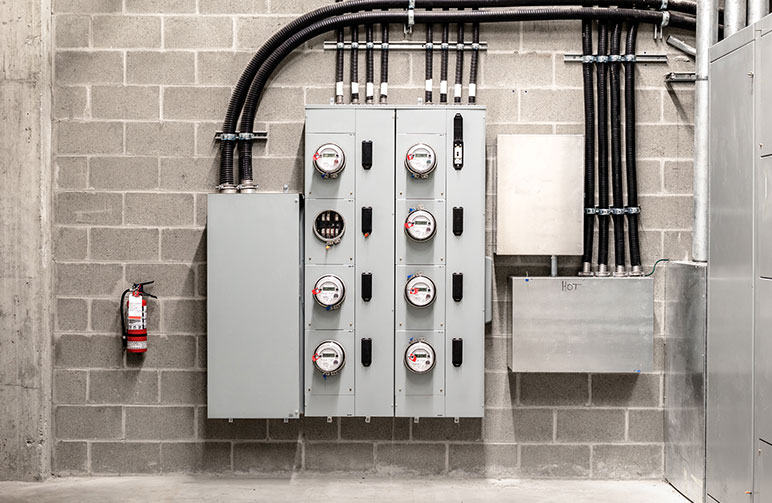In the modern world, where technology reigns supreme and our daily lives are increasingly dependent on electrical devices, having a robust and efficient electrical panel is more critical than ever. Why should you upgrade electrical panel? Whether you’re considering a renovation, adding new appliances, or simply ensuring the safety of your home, understanding the importance of panel upgrades can make a significant difference. This guide will delve into the nitty-gritty of panel upgrades, detailing why and when you need them, and what benefits they bring to your home.
1. What is an Electrical Panel and How Does It Work?
An electrical panel, often referred to as a breaker box or distribution board, is the central hub of your home’s electrical system. It distributes electricity from the main power line to various circuits throughout your home. Each circuit is protected by a circuit breaker or fuse, which shuts off electrical flow in case of an overload or short circuit, preventing potential fire hazards.
Key Components:
- Main Breaker: Controls the power flow to the entire panel.
- Circuit Breakers: Individual switches that control power to specific areas or appliances.
- Bus Bars: Distribute power to each circuit breaker.
- Neutral and Ground Bars: Provide paths for electrical current to return safely to the ground.
2. Why Consider a Panel Upgrade?
Upgrading your electrical panel enhances safety, accommodates new appliances, and meets modern electrical demands. It’s a smart choice for ensuring your home’s efficiency and readiness for future needs. Here are some reasons why should you upgrade your electrical panel:
Aging Infrastructure: Older homes often have outdated panels that can’t keep up with modern electrical demands. Panels over 25 years old may struggle to power today’s energy-intensive devices.
Safety Concerns: Older panels may not have adequate safety features. Frequent tripping, flickering lights, or burning smells are signs that your panel may need an upgrade.
Increased Power Needs: Home additions, new appliances, or the switch to electric vehicles increase your home’s power demand, often requiring a panel with a higher capacity.
Insurance Requirements: Some insurance companies may require an updated electrical system for coverage, particularly if your home has an old or faulty panel.
3. When is the Right Time for a Panel Upgrade?
Renovations and Additions: If you’re adding new rooms, a home office, or significant appliances like a hot tub or electric car charger, you’ll likely need a panel upgrade to handle the increased load.
Consistent Electrical Issues: If you frequently reset breakers, experience flickering lights, or find that your electrical system can’t keep up with your needs, it’s time for an upgrade.
Safety Upgrades: Modern panels come with advanced safety features, like arc fault circuit interrupters (AFCIs) and ground fault circuit interrupters (GFCIs), which reduce the risk of electrical fires and shock.
4. The Benefits of Upgrading Your Electrical Panel
Enhanced Safety: Modern panels meet the latest safety standards, reducing the risk of electrical fires and other hazards.
Increased Capacity: Upgraded panels can handle more circuits and a higher electrical load, accommodating new appliances and technology.
Improved Efficiency: New panels operate more efficiently, reducing the likelihood of power surges and providing a stable power supply.
Property Value: An updated electrical system can increase your home’s market value and appeal to potential buyers.
Compliance with Codes: Ensuring your electrical system complies with the latest building codes can be essential for renovations and home sales.
5. The Panel Upgrade Process: What to Expect
Assessment: A licensed electrician will assess your current panel, wiring, and overall electrical system to determine your needs.
Planning: Based on your current and future power requirements, the electrician will recommend the appropriate panel size and configuration.
Installation: The old panel will be safely disconnected and removed, and the new panel installed. This process may involve updating wiring, breakers, and other components.
Inspection: After installation, the system will be inspected to ensure it meets local codes and safety standards.
Testing: The electrician will test the system to ensure everything is working correctly and efficiently.
6. Choosing the Right Professional for Your Panel Upgrade
When considering a panel upgrade, it’s essential to hire a licensed and experienced electrician. Look for professionals with:
- Licensing and Insurance: Ensure they are properly licensed and insured.
- Experience: Choose an electrician with experience in panel upgrades and a strong track record.
- References: Ask for references or read reviews to gauge their reputation and customer satisfaction.
- Clear Estimates: Get a detailed estimate that outlines the scope of work, materials, and costs involved.
Upgrading your electrical panel is a vital step in ensuring your home’s safety, efficiency, and capacity to handle modern electrical demands. Whether you’re experiencing issues with your current system or planning significant upgrades to your home, understanding the importance and benefits of a panel upgrade can help you make informed decisions. Investing in a professional panel upgrade not only enhances your home’s safety and functionality but also adds to its overall value.
Ready to upgrade your electrical panel?
Contact us today to schedule a consultation with our expert electricians, and take the first step towards a safer, more efficient home.

